What is an IoT platform?
At one end you have a machine, at the other end you find the management system. But how does the data that you can collect via sensors on your machines, for example, get to your back end? You need a "translator" - an IoT platform. In the Internet of Things - and likewise in the Industrial Internet of Things (IIoT) - it is essential that the most diverse data sources communicate bilaterally with the most diverse applications via their own respective standards and interfaces. IoT platforms ensure this communication, but also provide the foundation for specialized applications, analytics and automated operations.
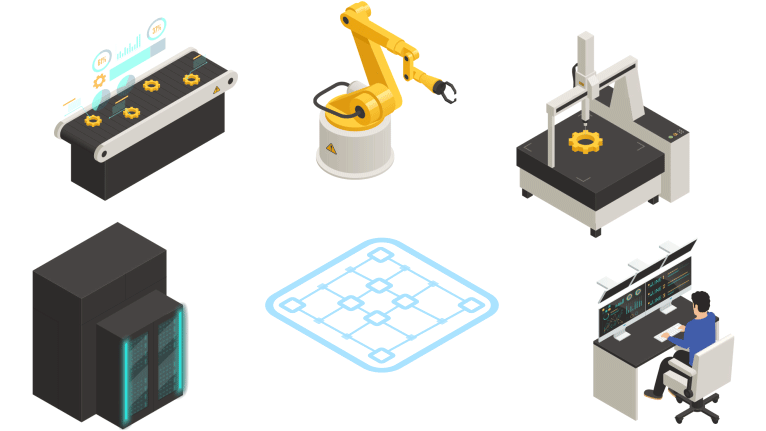
IoT platform, integration platform, etc.: Which type is the right one?
End-to-end platforms are indispensable for holistic digitalization in production and service. They offer you the openness you also need for future projects around AI, AR or robotics, for example. That's why we rely on the market leaders such as PTC, MIP and Amazon. But there are differences here as well:
Horizontal vs. vertical platforms
Horizontal platforms such as Amazon's AWS-IoT are universal and adaptable to diverse industries. Vertical platforms like ThingWorx, on the other hand, focus on specific industries or sectors and deliver specialized tools.
Integration platforms
Integration platforms such as MIP or TRANSCONNECT® show their strengths when it comes to connecting existing systems and solutions along the value chain in a process-oriented manner. Here, the focus is more on dovetailing than on the creation of proprietary IIoT solutions.
In the cloud, on premise and edge
All solutions from our portfolio are cloud-enabled. However, if the new core of your smart factory is to be operated on premise or on edge - i.e. locally on your own servers - ThingWorx offers advantages. Beyond that, hybrid solutions are also feasible.
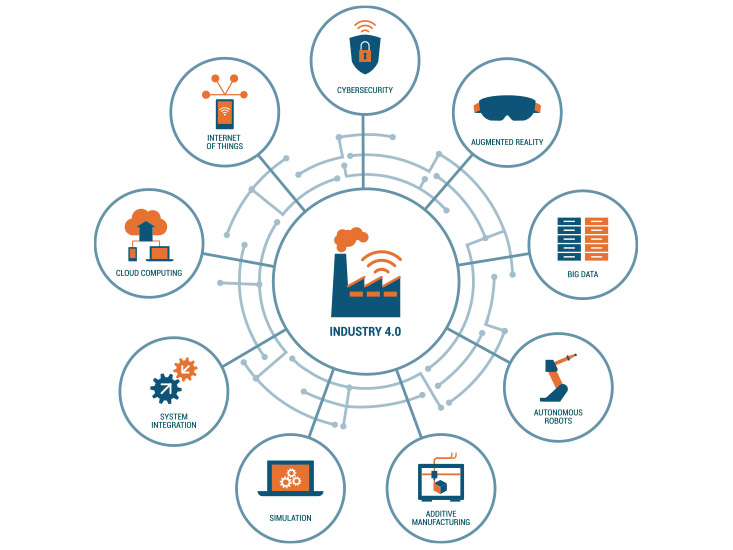
What must an Internet of Things platform be able to do?
An IoT platform should be comprehensive. From the connection of diverse external data sources and data collection to visualization and preparation for connected systems such as ERP or MES, a platform should unify processes.
An IoT platform should be future-proof. Based on open interfaces and universal standards, it guarantees the connection of existing, current and future machines and systems.
In addition, an IoT platform must be secure. All your data will pass through the platform at some point in the process. Therefore, it must have the most advanced security and protection mechanisms.
We offer solutions with these integration & IoT platforms
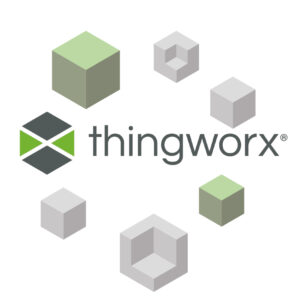
PTC ThingWorx
Cross-industry, industrial IoT platform
ThingWorx is an IIoT platformdesigned for industrial companies to help you drive the digital transformation of your business units.
The ThingWorx architecture is modular. Its feature set simplifies the development, deployment, and scaling of IIoT solutions for a variety of common use cases across diverse industries.
With more than 150 device and client drivers, advanced plug-ins and connectors, ThingWorx enables connectivity to thousands of devices and systems, creating a single source for secure IIoT data collection, aggregation and analysis.
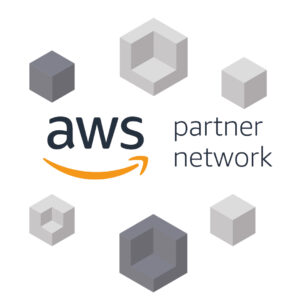
Amazon Web Service – AWS
Global, industry-independent cloud platform
The Amazon Web Services (AWS) cloud platform offers more than 200 services. This provides you with a particularly large range of functions that are not focused exclusively on industrial use cases.
The functions and services range from storage solutions and databases to machine learning and artificial intelligence to data lakes, analytics and the Internet of Things. As a result, AWS enables you to quickly and easily move your solutions to the cloud and develop custom-fit applications for almost any use case.
With AWS, you also rely on the highest data security that meets the most demanding standards.
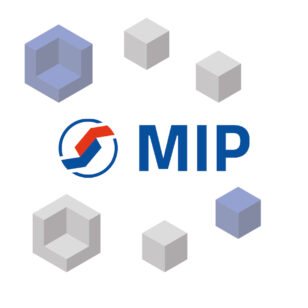
MIP by MPDV
Integration platform for manufacturing companies
The Manufacturing Integration Platform (MIP) is an open integration platform for manufacturing. As a central information and data hub, it enables all applications to communicate based on a common information model.
In addition, the MIP creates an ecosystem for users, providers and integrators. Providers and users of the MIP can develop manufacturing apps (mApps) themselves and offer them via the platform.
Users and integrators select the apps they need from the existing mApps and combine them flexibly. Standard applications from different providers can be easily integrated into the Smart Factory ecosystem.
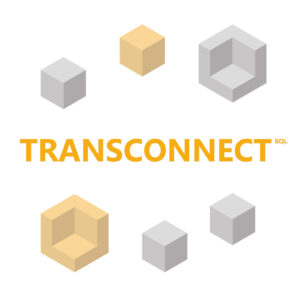
TRANSCONNECT® by SQL
Integration platform for industry, administration, etc.
TRANSCONNECT® is a platform suite for modeling and automating business processes. It includes an edge-enabled integration platform as well as tools for data management and optimization.
As an integration platform, TRANSCONNECT® connects systems from the shopfloor (MES, PLC, logistics, etc.) with Topfloor systems for administrative, organizational and customer processes (ERP, CRM, PLM, etc.). In this way, you achieve maximum transparency across systems.
TRANSCONNECT® comes with a low-code development environment, enabling particularly intuitive automation across system and interface boundaries.
Frequently asked questions about IoT platforms & IIoT platforms
What IoT platforms are out there?
There are a range of IoT platforms that assist in the collection, processing and analysis of data. Some of the most well-known are:
- AWS IoT
- PTC ThingWorx
- Microsoft Azure IoT
- IBM Watson IoT
- Google Cloud IoT
- Oracle IoT
- Siemens MindSphere
- SAP Leonardo IoT
All of these platforms offer various features and integration capabilities for creating and operating IoT solutions.
What is the difference between IoT and IIoT?
IoT (Internet of Things) refers to the networking of everyday devices and objects to collect data and perform actions. IIoT (Industrial Internet of Things) specifically refers to the application of IoT technology in an industrial environment to improve efficiency, productivity and quality. IIoT includes specific protocols and standards for machines and systems from the production environment.
How do IoT platforms work?
IoT platforms are applications that enable the collection, storage and processing of data from networked devices. They integrate technologies such as cloud computing, Big Data and artificial intelligence for customized IoT applications. IoT platforms provide tools for:
- managing devices
- creating of rules and workflows
- visualizing and analyzing data
- an easier integration with other systems via API.
What is the difference between IoT and IIoT platforms?
IoT platforms and IIoT platforms have similar functions, but there are differences in requirements and supported applications. IIoT platforms are specifically designed to meet the requirements of industrial production and manufacturing and must meet more stringent safety and reliability standards. They also support specific industrial protocols and standards. IoT platforms tend to be more versatile and support a wider range of applications and devices.
What is the benefit of IIoT platforms?
With solutions based on IIoT platforms, you benefit from numerous advantages such as:
- real-time monitoring and analysis of machine data
- better planning and control of production
- improved efficiency and productivity
- optimization of uptime and reduction of downtime
- early detection of malfunctions and maintenance requirements
- improved quality and error reduction
- increased safety in the workplace
What are the disadvantages of IIoT platforms?
Some possible disadvantages of IIoT platforms are:
- higher investment and operating costs
- complex implementation and integration into existing systems
- potential privacy and security risks when transmitting sensitive data over the internet
- dependence on a single vendor
- challenges in data preparation and analysis due to unstructured data
What is the added value of an IIoT platform compared to an IoT platform?
IIoT platforms offer specific functions for industrial production compared to IoT platforms. These include:
- connectivity to industrial protocols and standards
- higher scalability and flexibility related to industrial scenarios
- specific analysis and monitoring functions for monitoring production processes and machine conditions
- ability to integrate legacy systems
- easy deployment of solutions through preconfigured modules
